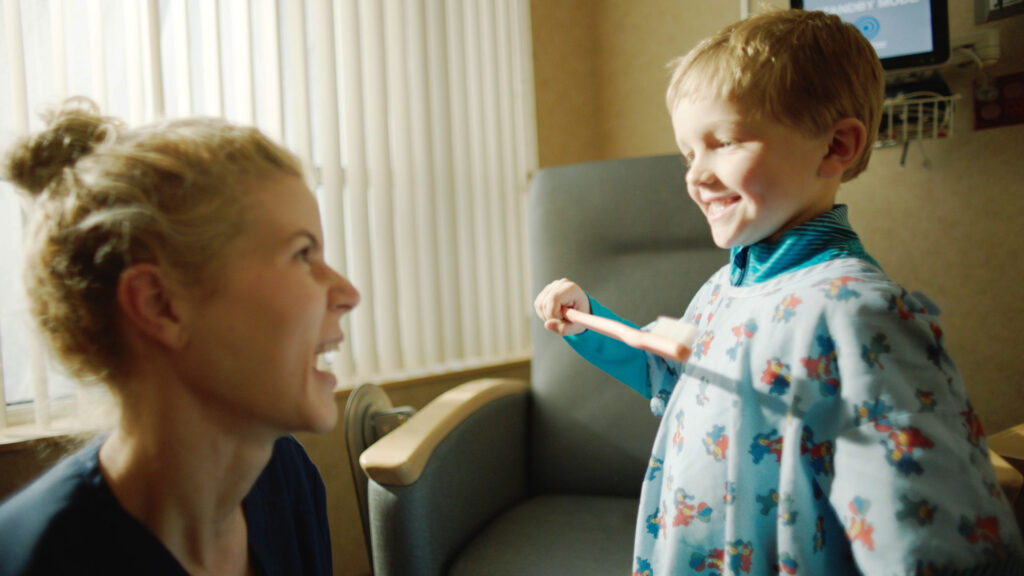Teaching Kids to Care For Their Teeth
Pediatric dental care is as much about making the proper introductions at the proper time as it is about effective cleaning.
In this blog, Dr. Allison Robinson, pediatric dentist with Eversmiles who practices at Lakewalk, breaks down the timing for things like solo brushing, flossing and cleanings, as well as tips for making sure your little one’s smile stays looking its best and brightest.

When Should Kids Start Brushing?
Kids can, and should, start helping you brush their teeth around the ages of 2 or 3. When they express an interest in it, seize on that opportunity to show them what you’re doing, and why. Keeping it light and fun, and even making a game of it, can go a long way toward making brushing a fun activity, rather than a chore.
By the time they’re tying their own shoes, they’re ready to try brushing on their own. That said, it’s a good idea to check in with them on the regular to ensure they’re doing a good job, getting good coverage with that toothbrush, and not missing any tough-to-reach spots.
When Should Kids Start Flossing?
As soon as you can see baby teeth touching, it’s time to introduce flossing with your little one. In terms of age range, this typically means in the 2-4 years window. With flossing, more so than brushing, it’s important to start slow. Focus only on the spots where baby teeth are touching at first, rather than trying to floss the entire mouth. And, even then, focus on three nights a week maximum. Introducing it slowly gives you the best chance of making it an experience that kids will, at best, enjoy and, at worst, not dread. For best results, floss their teeth while you’re flossing yours. Because you’re flossing yours, right? RIGHT?!
When Should Kids Start Seeing the Dentist?
Good dental habits for children include regular visits to the dentist, which should begin as soon as your kids’ baby teeth begin to erupt. As for frequency, aim for the same cadence you should be seeing your dentist: every six months.
These initial cleanings are more about building a foundation of trust and comfort than thorough plaque removal, however your dentist will want to ensure that growth and development is occurring correctly. Depending on your child’s age and current social development (i.e., do they need to be in your lap or are they in the waiting room playing independently) the dental team may structure these initial visits differently, in order to maximize your child’s comfort and provide the most positive experience possible, while still getting a good look at their teeth and gums.
How To Deal With Dental Anxiety in Kids?
There are many options to consider when trying to ease dental anxiety in your child. This can include watching videos online, reading children’s books on the topic, or even playing pretend. But, in our experience, the best way to deal with dental anxiety in children is to find a dentist you trust who will create a first visit experience focused on questions, play, and comfort. That’s what we offer at Eversmiles, and that’s what we practice at Lakewalk.
Learn more at eversmiles.com